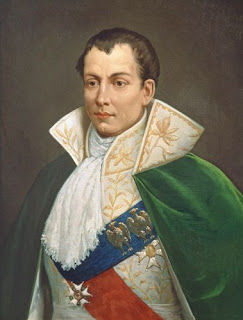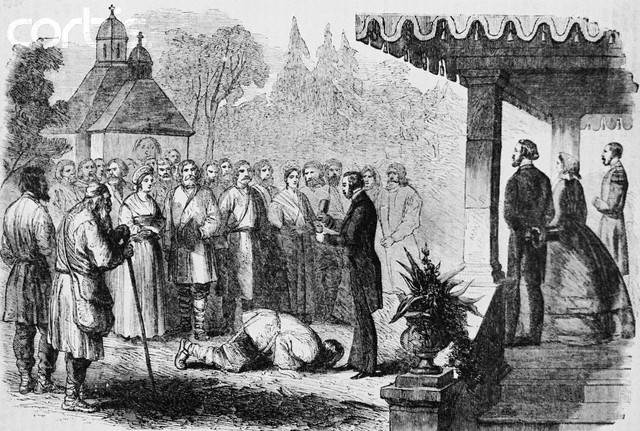Rudyard Kipling famously opined that “East is East and West is West and never the twain shall meet”. He was obviously referring to the post-renaissance materialistic philosophy that started to take hold in the west while the spirituality of much of the east had not changed with time. He would have experienced it first-hand having been born and raised in India and then having spent his adulthood in Britain. What is surprising is that socio-politically though the west was as backward perhaps as many parts of the east through much of the nineteenth century. Criticism of the ways of the Rana rulers of Nepal and similar family oligarchies of the east, especially coming from erudite western commentators, sounds quite hollow when similar absolute monarchies and dictators were ruling the roost in their own backyard. “Empire” was evil in its own nefarious way, let us not forget it. Not to sound like an apologist for the excesses of the Rana period, I would like to submit here that this was the way of the world – east or west – period!
 |
| Joseph, elder brother of Napoleon |
Napoleon Bonaparte not only crowned himself Emperor of post-revolutionary France but also succeeded in making his brother Joseph King of Naples and Sicily by decree in 1806 and got recognition from Prussia and Russia. Later he became the King of Spain. Napoleon’s son Francois was crowned King of Rome! Napoleon re-arranged the map of Europe like nobody had done before him. General Bhimsen Thapa was Napoleon’s contemporary in Nepal. Had he not clashed against the superior military might of British India, he would have carved up much of the Himalayan region into a Greater Nepal. Prime Minister Jung Bahadur Rana had himself crowned the Maharajah of Kaski and Lamjung albeit by decree of a powerless King Surendra Bir Bikram Shah. Both of them were very much our Bonaparte!
 |
| Emancipation of serfs in Russia, 1861 A.D. |
Russia still had serfs during this entire period leading up to the death of Czar Nicholas I in 1855 A.D. Only by 1861 did Russia legislate the emancipation of serfs under the liberalizing influence of their new Czar Alexander II. Jung Bahadur had himself tried to end the inhuman practice of slavery and suttee but he could not succeed during his lifetime. Had Maharajah Jung Bahadur Rana managed to visit Russia as originally planned following the visit to Britain and France in 1850, he would have seen a country much like his own. Nicholas I was a martinet and Jung would have found common cause with him regaling in military parades and elaborate and lavishly prepared state occasions. Notwithstanding the setback Russia suffered during the Crimean War, under Czar Nicholas I Russia had gained a huge empire to the south and east bordering Persia, China and through Siberia to the Pacific Coast. Empire building was the norm and the European powers were outdoing one another trying to gain footholds in faraway lands and control their resources.
The sun never set in the British Empire during much of 18th and 19th centuries. The largest land mass any empire had acquired in world history, the empire covered 6 Continents and similar time zones. At any given instance there was bound to be daylight in some corner of the empire! After having lost America to its independence India became the jewel in the crown. A trading company set up under a Royal charter in early 17th century had opened its first trade post in India in Surat in 1613 A.D. under a special concession granted by Mughal Emperor Jehangir. The Honorable East India Company had devoured much of India in a hundred years since. Similarly the House of Gorkha had conquered Kathmandu Valley and expanded their territories through much of the mountainous regions south of the Himalayan massifs. In an age when an European power thousands of miles away could take control of the multitude of nation states of South Asia – both Muslim and Hindu – and subjugate them in the name of civilizing them, then nobody should begrudge the Gorkhalis for unifying disparate and largely backward mountain tribes and forging a great nation state in the laps of the Himalaya!
Expediency dictated that Nepal under the Rana regime forge close ties with the British rulers of India. It was but a natural reaction to self-preservation. After the Treaty of Sugauly truncated the territories of Nepal which were acquired decades earlier, the rulers saved Nepal as an independent state. It is an open question what Nepal would look like today had the British taken over and, like all other princely states of India, handed us over to an independent India notwithstanding the various treaties and agreements the British had signed earlier with those princely states. One thing is for sure, our Maoist insurgency would have been either nipped in the bud or would be festering like a gangrenous sore as in a few parts of India today.



